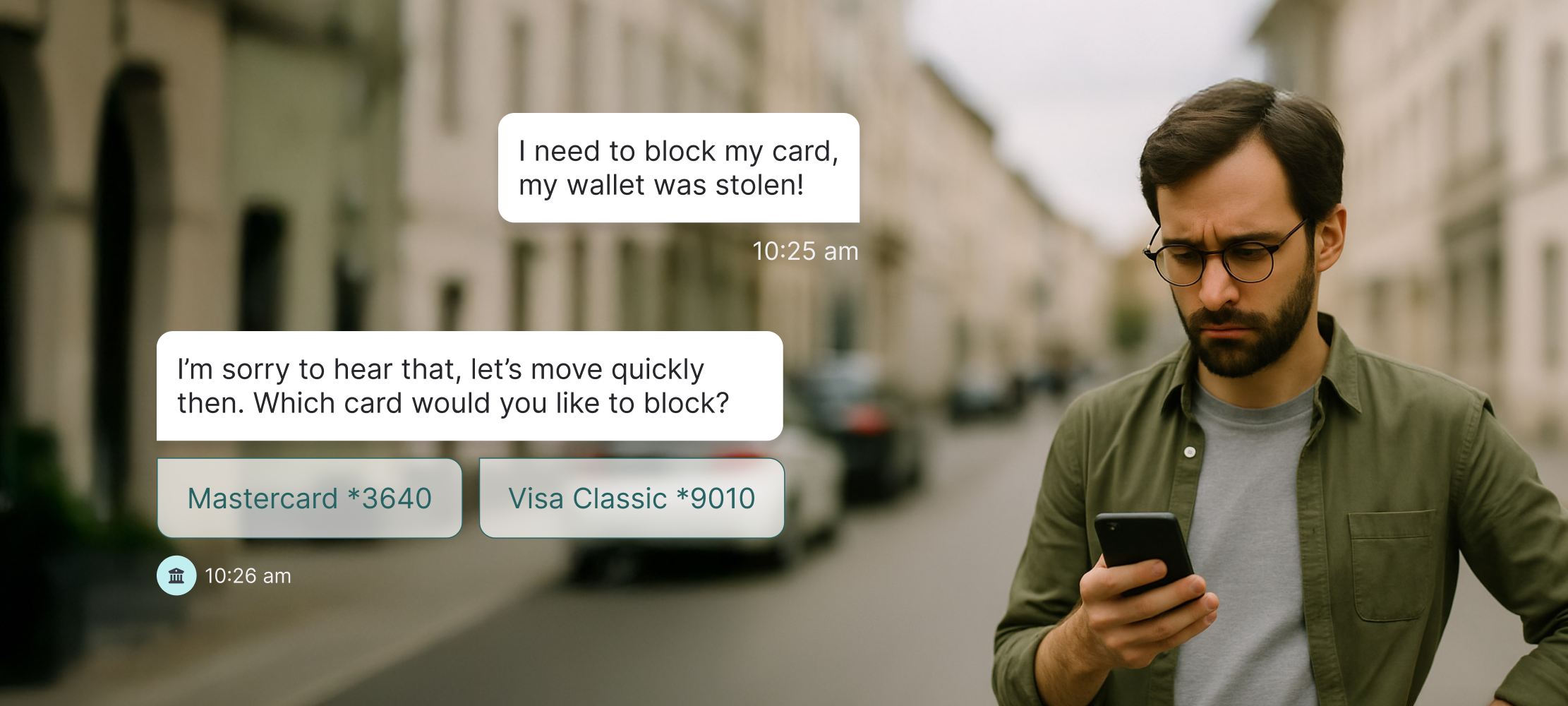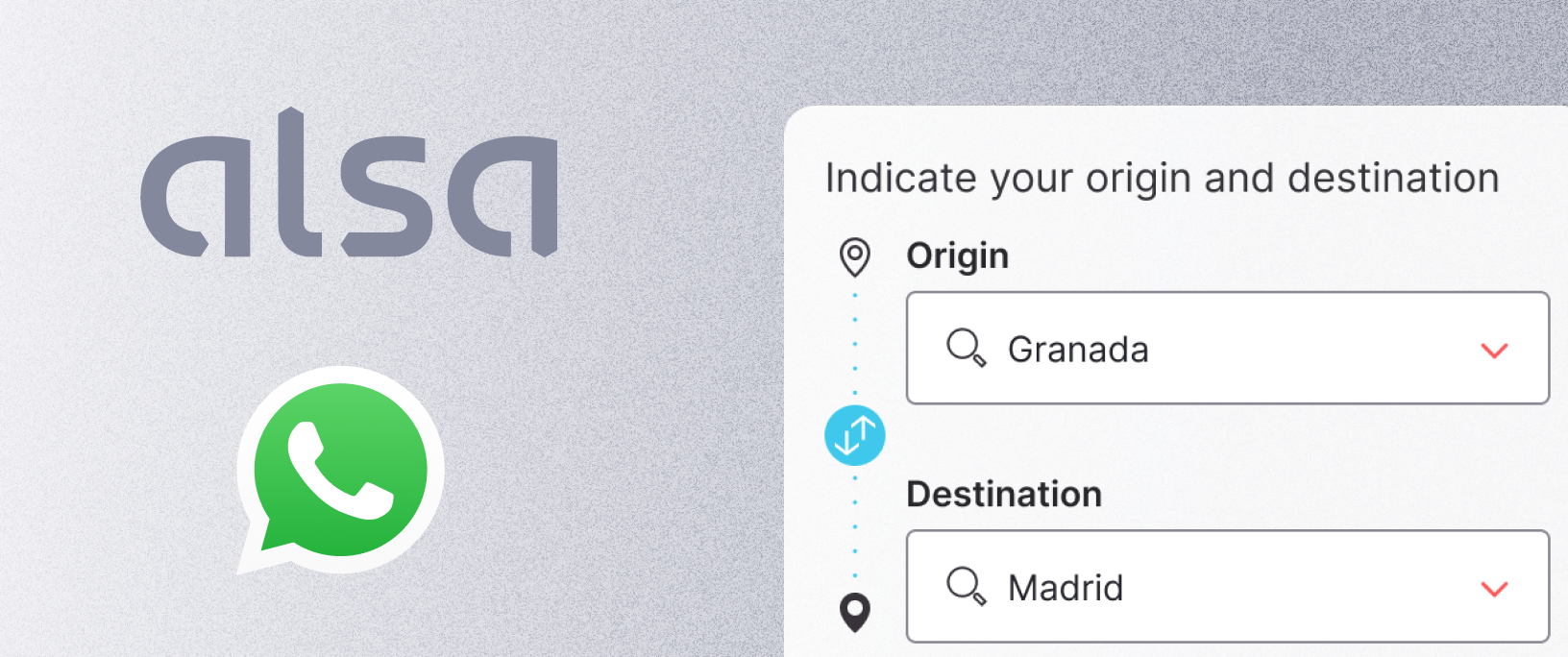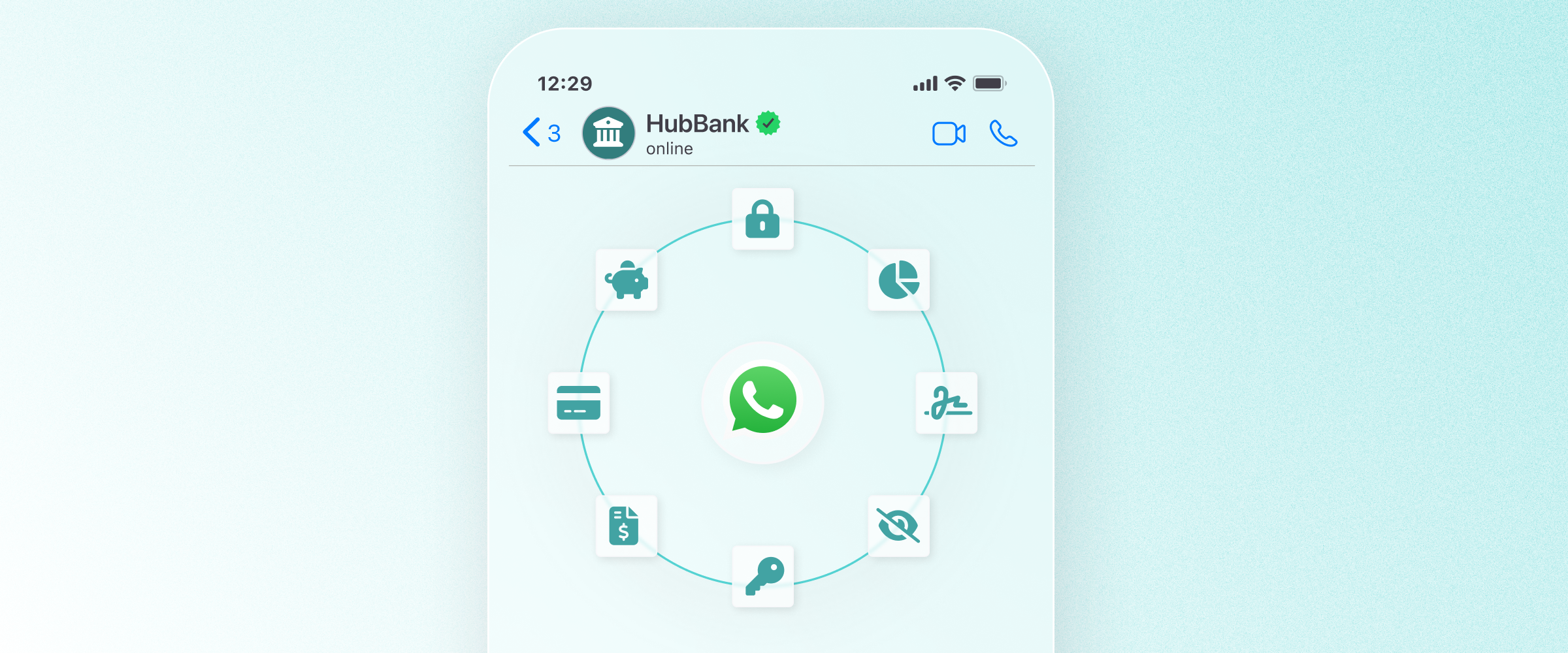In South Africa, messaging apps are a crucial part of doing business. They allow companies–small and large–to communicate with customers, accept payments, and otherwise operate a successful business.
WhatsApp, in particular, has become a fundamental tool for business communication. In this article, we’ll review why WhatsApp is so popular here, and how the country has become a booming hub for conversational commerce.
But what is conversational commerce?
Conversational commerce refers to the use of messaging apps, chatbots, and conversational interfaces to guide customers through their shopping journey in real time. Learn more in our blog on conversational commerce.
The growth of WhatsApp in South Africa
WhatsApp is the most popular social media in South Africa. 93.8% of internet users in the country use the app. Facebook and Instagram follow, with a penetration rate of around 87% and 73%, respectively.
WhatsApp is a critical tool for businesses in South Africa, which has always been a mobile-first, or in many instances, a mobile-only environment. The country is also known for its small but extremely innovative tech community and a strong entrepreneurial spirit. This makes it the perfect environment for the growth of conversational commerce.
Why is WhatsApp so popular in South Africa?
A few key reasons why WhatsApp is so popular in South Africa include:
- WhatsApp can run on various entry-level smartphones, some of which cost under one hundred dollars and allow for cheap and effective communication.
- South Africa is an Android-dominant market, where WhatsApp is most people’s default messaging service.
- Messaging apps are sometimes the only viable option for staying in touch with family and friends living and working elsewhere in areas where telecommunications infrastructure is still being developed.
- WhatsApp allows people to communicate between countries for free – which is important in regions where family ties often cross borders.
- The app adjusts to spotty internet service by sending messages as soon as the signal returns.
Automation and messaging are shaping the future of CX in South Africa
Conversational commerce in South Africa is rapidly evolving beyond simple message exchanges. With the rise of WhatsApp Business Platform and AI-powered automation, brands can now deliver full customer journeys—from product discovery to post-purchase support—without ever leaving the messaging thread.
This shift is especially powerful in South Africa’s mobile-first economy, where many customers skip desktop-based browsing altogether. Messaging is not just a support tool—it’s becoming the primary interface for shopping, payments, and loyalty.
The impact of automation is clear:
- Faster responses and reduced wait times
- Lower operational costs without sacrificing quality
- Personalised support that improves customer satisfaction (CSAT)
- Cross-channel scalability, with the ability to launch on WhatsApp, Messenger, webchat, and more
As more businesses adopt the WhatsApp Business Platform and integrate conversational CX platforms, South African brands are leapfrogging into a future where conversations don’t just support commerce, they drive it.
The role of automation and messaging in South Africa’s digital customer experience
Let’s take a look at seven South African companies that have successful WhatsApp use cases.
Retailers streamlining everyday experiences
Shoprite (Supermarket Retailer)
Shoprite Holdings Ltd, is Africa’s largest supermarket retailer, operating more than 2,943 stores across Africa. A quarter of South African consumers shop at Shoprite, more than double its closest competitor, Pick ‘n Pay.
The company is dedicated to improving the customers’ shopping experience, removing friction, and offering the best deals on everyday products. Their vision is to be Africa’s most customer-centric retailer, and they are putting in the effort to make it happen.
In fact, last year, the Shoprite group launched ShopriteX, the company’s tech and innovation hub. It aims to grow and monetize its ecosystem of value for consumers by creating a seamless shopping experience.
WhatsApp plays a key role in making experiences convenient and innovative. People can use WhatsApp to browse grocery flyers, find stores, sign up for their savings program, and even apply for a job.

These experiences rely on purposeful automation to give customers immediate support.

Dis-Chem (Pharmacy)
Dis-Chem is a leading corporate retail pharmacy group in South Africa. This April, Dis-Chem adopted WhatsApp as a customer communication channel to engage with customers. The move will help the pharmacy bring fast and cost-effective service to millions of customers.
Dis-Chem customers can now quickly and easily access register for a benefits card, update personal details, check their loyalty points balance, report lost or stolen cards, and more.
The company will also use the channel to send proactive notifications to customers about when their mediation is scheduled for delivery or due to be picked up. Customers can also get fast answers to frequently asked questions about other services and store information.
DSTV (Broadcast Satellite Service)
DStv (Digital Satellite Television) is a Sub-Saharan African direct broadcast satellite service owned by MultiChoice. The service launched in 1995 provides multiple channels and services to its subscribers.
The company recently made it possible for customers to troubleshoot problems, update subscription packages, and manage their accounts through WhatsApp. All they have to do to get started is to type “Hello.”

Banks and insurers embracing in-chat payments
Telkom SA (Telecommunications)
Telkom SA is a wireless telecommunications provider, operating in more than 38 countries across the African continent. In March 2021, the company launched Telkom Pay, South Africa’s first digital wallet. With it, users can make and receive payments through WhatsApp–to anyone on their contacts list.
Telkom pay also serves as a cashless point-of-sale payment option for businesses. Now, with the addition of the virtual Mastercard card to the wallet, users can make payments to local and global online merchants that accept Mastercard, including Uber and Netflix.
NedBank (Retail Bank)
Nedbank was recently recognized as the “Best Retail Bank in Africa and South Africa” and the “Best Bank for SMEs in South Africa” at the 2022 Asian Banker Excellence in Retail Financial Services International Awards.
Nedbank is transforming ecosystems with its innovative solutions–both inside and outside of the banking industry. In 2021, Nedbank launched Money Message, which allows users to pay small businesses via WhatsApp. This solution lets merchants send an invoice to any customer through WhatsApp. Their customers can then settle the payment directly from the platform.
Chipo Mushwana, an executive for emerging payments explained, “at Nedbank, we firmly believe enabling businesses to accept digital payments empowers them to achieve their goals and create great customer loyalty with little to no investment beyond the phone they already have. These solutions look to overcome a variety of cost, security, and technical barriers by enabling micro, small and medium businesses, and their customers to transact with each other easily.”
Old Mutual (Insurance Company)
Lastly, Old Mutual Limited (OML) is a premium African financial services group that offers insurance solutions to retail and corporate customers. The company has been using WhatsApp to help customers manage their policies, products, and information.
Most recently, the company rolled out a new service allowing costumes to catch up on missed premiums. Through WhatsApp, they simply need to provide permission for Old Mutual to collect payments.
Customers can now:
- Manage premiums and payments
- Submit a funeral claim
- Make a withdrawal
- View Old Mutual products and policies
- Check retirement fund benefits and track your claim status, view benefit statement, and access member educational content
- Retrieve policy documents and tax certificates
- View Old Mutual Rewards
- Apply for Old Mutual products like savings, investments, funeral, personal, education plan, health insurance, and short-term insurance

Startups proving mobile-first CX works
FoondaMate (Ed-Tech Startup)
FoondaMate is a South African ed-tech startup that helps students with their studies. It gives them immediate answers to questions and access to revision papers, while also guiding them in responses to questions.
FoondaMate recently secured a $2 million seed funding round to drive uptake of its WhatsApp and Facebook-based learning chatbot across the globe. The move demonstrates how messaging apps can be likened to search engines in South Africa.
Dacod Magagula, who co-founded FoondaMate, told TechCrunch, “It (WhatsApp) was in beta at the time, and I started playing around with it … I thought it’d be a really good way to enable access to study materials to students in the same position as myself…because a majority of students do not have access to the wider internet but have access to WhatsApp. Also, a lot of network providers offer WhatsApp for free to attract users to their network.”
From retailers and telcos to banks and edtech startups, South African businesses are proving that mobile-first, messaging-based commerce isn’t just viable—it’s preferred. As WhatsApp and automation technology mature, brands have a unique opportunity to create seamless, scalable customer experiences that build loyalty and drive revenue.
Whether you’re looking to streamline support, increase conversion, or grow your business with fewer resources, the tools are here—and so are the success stories. If you're ready to explore conversational commerce at scale, let's talk!











.jpg)
